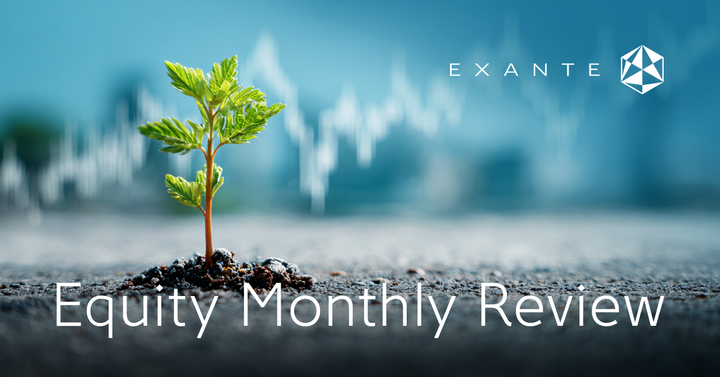- No pause for the Fed
- A test of nerves for the Bank of England
- Europe’s manufacturing problem
- Is a colder crypto winter coming?
- Key data for the coming week
- Key corporate earnings for the coming week
US:
S&P 500  7.54% QTD and
7.54% QTD and  19.09% YTD
19.09% YTD
Nasdaq 100  0.57% QTD and
0.57% QTD and  33.15% YTD
33.15% YTD
Dow Jones Industrial Average  13.67% QTD and
13.67% QTD and  10.14% YTD
10.14% YTD
NYSE  7.61% QTD and
7.61% QTD and  15.53% YTD
15.53% YTD
Europe:
Stoxx 600  6.59% QTD and
6.59% QTD and  18.25% YTD
18.25% YTD
DAX  9.43% QTD and
9.43% QTD and  16.54% YTD
16.54% YTD
CAC 40  9.82% QTD and
9.82% QTD and  12.25% YTD
12.25% YTD
IBEX35  8.17% QTD and
8.17% QTD and  8.55% YTD
8.55% YTD
FTSE MIB  10.43 % QTD and
10.43 % QTD and  16.62% YTD
16.62% YTD
FTSE 100  3.63% QTD and
3.63% QTD and  3.26% YTD
3.26% YTD
Global:
MSCI World Index  6.16% QTD and
6.16% QTD and  22.17% YTD
22.17% YTD
Bitcoin  1.32% MTD and
1.32% MTD and  56.39% YTD
56.39% YTD
Ethereum  3.30% MTD and
3.30% MTD and  58.99% YTD
58.99% YTD
Note: As of 6pm EDT 2 November 2022
The Fed target rate continues to climb. As widely expected, the Fed raised interest rates another 75 basis points on Wednesday and raised the target range to 3.75 - 4.0%. Fed Chair Jay Powell said the Fed has “some ways to go” given a string of economic reports suggesting prior Fed moves had yet to slow down inflation. However, markets took some hope that the Fed may be less aggressive in December’s meeting after Powell said that “the time is coming, and it may come as soon as the next meeting, or the one after that.” However, this hope was short lived as during the press conference Powell said that the “terminal” rate will be higher than previously expected, that the Fed will move in smaller increments, and it was too soon to think about pausing. In short, the Fed is not about to pivot on policy until it has seen the full impact of its series of rate rises on inflation and inflationary expectations. Fed futures have now priced in a 50 bps rise in December with the target rate at 5%.
The USD continues to strengthen, buoyed by a sharp rise in Treasury yields following the Fed’s decision: it’s up over 15.7% YTD against the GBP, about 13.6% YTD against the EUR, and is over 28% against the YEN.
This week saw investors reacting to a mixed corporate reporting season, with tech and growth stocks taking a particularly strong hit on fears about falling levels of consumer demand due to a slowdown in economic growth, falling disposable incomes as a result of high inflation, and continuing supply chain problems out of China. Meta Platforms, DXC Technology, ON Semiconductor, Qualcomm, Seagate Technology Holdings, Alphabet, Amazon, Apple, Microsoft, and Tesla all ended the week down.
Energy stocks started the week well, but with concerns over demand falling due to rising global recession fears and a rising US dollar, many have seen a drop this week including Marathon Oil Corporation, Schlumberger, Exxon Mobil, Chevron Corporation, Occidental Petroleum, Devon Energy Corporation, Baker Hughes, and Halliburton.
The Bank of England’s blind faith. The BoE raised rates again on Thursday by 75 bps, the fastest pace in 33 years. It pushed the base rate to 3%, the highest since 2008. With inflation running at 10.1% in September and the BoE having to step into the longer end gilt market following on from Liz Truss’s “mini” Budget involving £45bn of unfunded tax cuts which caused government borrowing costs to soar, the pressure was on for the BoE to deliver. The BoE forecasts inflation will hit a 40-year high of around 11% during Q3, and that the economy is already in a recession that could potentially well into 2024, causing the economy to shrink by 2.9%. Unemployment would rise steadily to 6.4% by late 2025. Data, such as Manufacturing and Services PMIs, 46.2 and 48.8 respectively in October, have shown contractions in the UK economy. Even though unemployment is at a low of 3.5%, signifying a very tight labour market, the UK economic inactivity rate is estimated at 21.7%, which is 1.4% higher than before the pandemic. "Further increases in Bank Rate may be required for a sustainable return of inflation to target, albeit to a peak lower than priced into financial markets," the BoE said. The bank has acted without knowing what the government will do on the fiscal policy side as the Autumn statement, which may include changes to taxes and/or spending, won’t be announced until 17 November. It therefore has to hope that its policies will be accommodative to the Bank’s. However, if they don't take effect until well into 2023, the BoE will still have to contend with existing inflationary pressures.
The BoE became the first major central bank to reverse QE when it sold £750mn of short-term government debt on Tuesday. It has said it will trim its balance sheet, consisting of almost £850 bn of gilts, by £80bn over the coming year.
Europe’s energy crisis becoming an industry crisis? Although demand for natural gas and electricity both fell over Q3, easing the strain on supplies, it may be due to companies shutting down plants. This could have serious longer term consequences for Europe’s industrial base as energy-intensive industries, such as chemicals, steel, plastics, paper, wood, refinery, aluminium, and fertilisers, may seek to permanently shift production to locations where energy is cheaper. According to BNE Intellinews, in Germany, Europe’s industrial powerhouse, the most energy-intensive industries are already being hit hard by unsustainable costs: energy accounts for 26% of the metallurgy industry costs; 19% of basic chemical production; 18% of glass manufacture; 17% for paper; and 15% of construction materials. Marco Mensink, Director General of the European Chemicals Industry Council (Cefic) said in a statement this month, “We are approaching the point of no-return: if no emergency solution to the energy prices is provided to our sector, we are not far off the breaking point. Hundreds of businesses in the chemical sector are already in survival mode and we have started seeing the first closures. We need action now. According to Cefic, the EU chemical sector supplies virtually all other value chains, including food, healthcare, construction and transport, and any disruptions it undergoes endanger the EU’s aim to be strategically autonomous. The data itself is becoming clearer: Eurozone manufacturing activity was down to 46.6 in October, a fourth straight month of falling activity and the biggest contraction since May 2020. And, according to Reuters, EU primary aluminium output was halved, cut by 1 million tonnes, over the past year. Trade figures show all nine zinc smelters in the bloc have either cut or stopped production, which was replaced by imports from China, Kazakhstan, Turkey, and Russia.
A colder crypto winter? As interest rates rise, the big question for many is if this will worsen the ongoing “crypto winter”. Kathleen Breitman, co-founder of Tezos blockchain, said in an interview with CNBC that the ongoing crypto winter is “only going to get worse.” She blamed venture capital firms for the bear market. As the US Federal Reserve and other central banks around the globe are likely to continue to raise rates well into 2023, the end of cheap money means the crypto industry and its investors are having to recalibrate the value of crypto companies. However, this view was challenged by the founder and CEO of Binance, Changpeng ‘CZ’ Zhao. Who told an audience at the Lisbon Web Summit earlier this week that crypto was probably the “only stable thing in this very dynamic environment.” He attributes a fall in the stock market to a rising crypto price, claiming that “when the Fed raises rate and the stock market crashes, they want more cash, so they sell crypto. This is because the user base is still very highly correlated.” This difference of opinion and how it impacts investors may be why the global financial stability board (FSB) suggested in October that crypto asset companies set aside capital like banks when undertaking similar activities.The FSB is looking to get cross border agreement on regulating crypto assets. It recommends putting in place a coordinated framework for oversight to manage risks and data at crypto firms, and also to have contingency plans in place for a smooth shutting down of crypto asset firms that may be in trouble.
Key data to look out for this coming week
Europe:
Friday: German Factory Orders, Spanish and Italian S&P Global Services PMI, German S&P Global/BME Composite and Services PMIs, Eurozone S&P Global Composite and Services PMIs, Eurozone PPI, and speeches by ECB President Christine Lagarde and Vice President Luis De Guindos.
Monday: Eurogroup meeting and Eurozone Sentix Investor Confidence Survey.
Tuesday: EU Ecofin meeting, Eurozone Retail sales.
Thursday: ECB Economic Bulletin.
UK:
Friday: A speech by Bank of England Chief Economist Huw Pill.
Tuesday: BRC Like-for-Like Retail Sales.
In the US:
Friday: Average hourly earnings, Labour force participation rate, Nonfarm payroll, Unemployment and underemployment rates.
Thursday: Initial and continuing jobless claims and CPI.
Please remember that US Daylight Savings ends on Sunday, 6 November 2022.
Upcoming Corporate Earning Reports:
Friday: Alibaba Group Holdings, Enbridge, Duke Energy Corporation, Dominion Energy, Hershey Company, Softbank, Itochu, Cardinal Health, PPL Corporation, Telefonica, Sempra Energy, Ameren, Ventas, CBOE Global Markets
Monday: Activision Blizzard, Marriott International, Diamondback, IFF, Viatris, Admiral Group, Palantir Technologies, Choice Hotels, Viper Energy Partners, Cabot Corporation, HIscox, Tripadvisor, AMC Entertainment, Kosmos Energy
Tuesday: Pioneer Natural Resources, Occidental Petroleum, Walt Disney Company, Emerson Electric Company, Lemonade, Lucid Group, Plug Power, Upstart Holdings, Constellation Energy, Jack Henry & Associates, Alliant Energy, Aveva, Tapestry, Persimmon
Wednesday: Fiverr International, Roblox, The Trade Desk, Beyond Meat, Jackson Financial, Rivian Automotive, Unity Software, Monster Beverage, DR Horton, Flutter Entertainment, Atmos Energy, Wynn Resorts, Taylor Wimpey
Thursday: Astrazeneca, Take-Two Interactive Software, Westrock CompanyAutotrader, Organon
DISCLAIMER: While every effort has been made to verify the accuracy of this information, EXT Ltd. (hereafter known as “EXANTE”) cannot accept any responsibility or liability for reliance by any person on this publication or any of the information, opinions, or conclusions contained in this publication. The findings and views expressed in this publication do not necessarily reflect the views of EXANTE. Any action taken upon the information contained in this publication is strictly at your own risk. EXANTE will not be liable for any loss or damage in connection with this publication.
Dit artikel wordt u alleen ter informatie verstrekt en mag niet worden beschouwd als een aanbod of uitnodiging tot het kopen of verkopen van beleggingen of gerelateerde diensten waarnaar hier mogelijk wordt verwezen. Handelen in financiële instrumenten omvat een aanzienlijk verliesrisico en is mogelijk niet geschikt voor alle beleggers. In het verleden behaalde resultaten bieden geen betrouwbare indicatie voor toekomstige resultaten.






